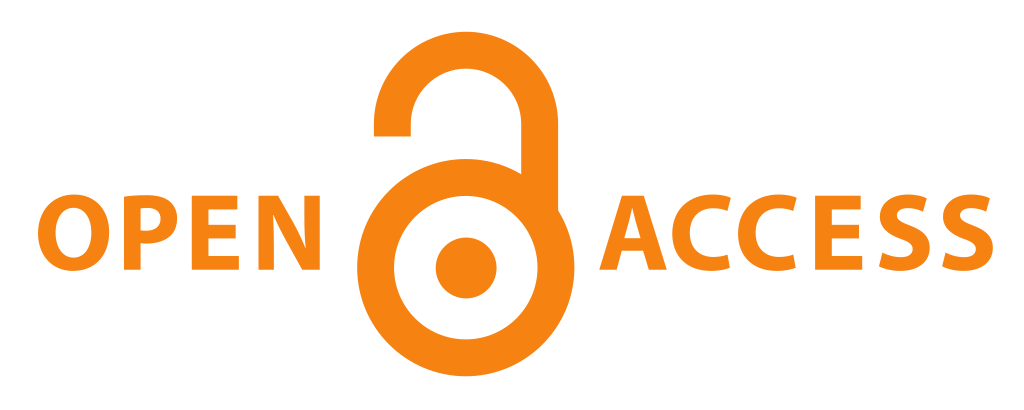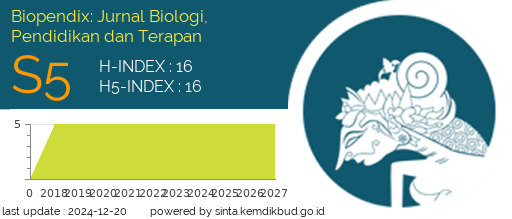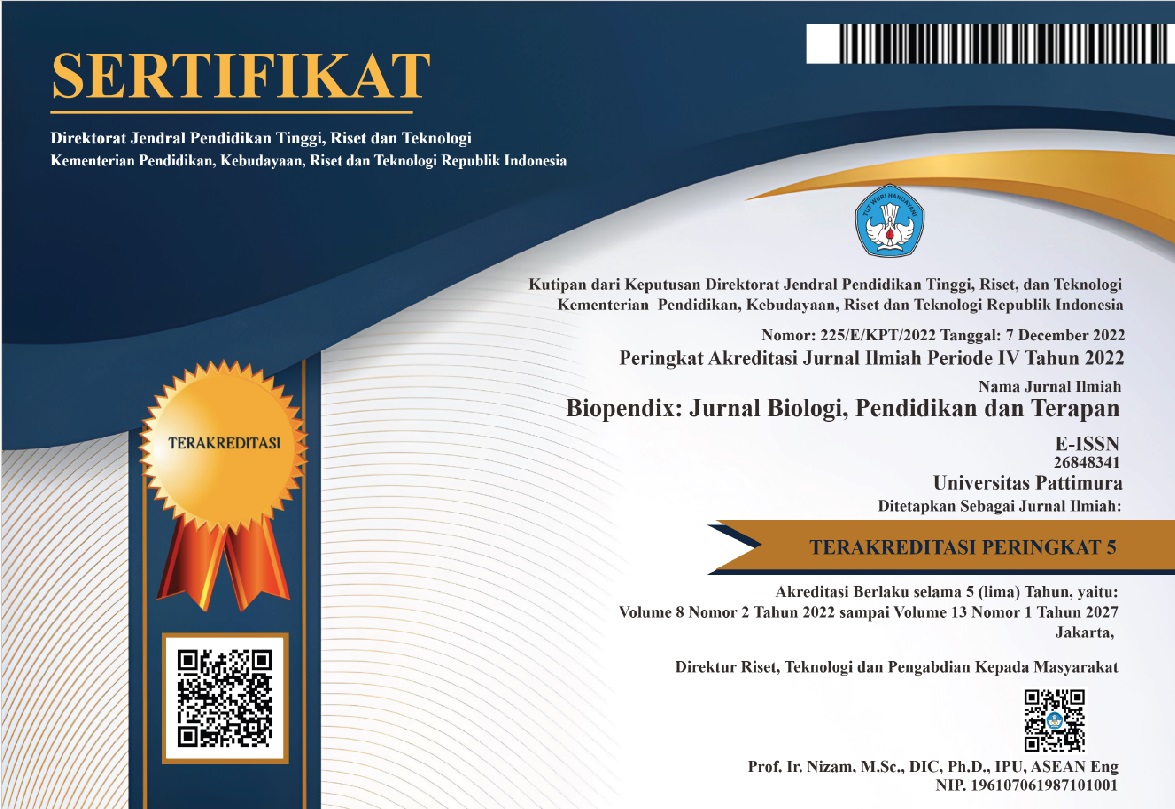PENERAPAN MODEL KOOPERATIF DENGAN METODE THINGKING ALOUND PAIR PROBLEM SOLVING (TAPPS) DALAM MENINGKATKAN KETRAMPILAN PEMECAHAN MASALAH DAN HASIL BELAJAR SISWA DALAM KONSEP SISTEM EKSKRESI KELAS VIII SMP NEGERI 1 AMBON
Abstract
Background: Education is one of the important factors in efforts to improve human resources in Indonesia. The latest methods and methods of learning are used to streamline the conventional learning process. Cooperative learning model with TAPPS (Thinking Aloud Pair Problem Solving) method in improving problem solving skills and student learning outcomes in the concept of class VIII excretion system at SMPN 1 Ambon.
Method: This study is a descriptive study that is by giving treatment in the form of learning by using cooperative learning models with the TAPPS method for class VIII students of SMP 1 Ambon, amounting to 21 people.
Results: In the cognitive, affective, and psychomotor aspects all students are said to be complete, with an average value of each aspect namely for cognitive 86.1 for affective 84.43 and psychomotor 83.1. While for problem solving skills obtained an average of 86.1. From the average value obtained by students, cooperative learning models with the TAPPS (Thinking Aloud Pair Problem Solving) method can improve problem solving skills and student learning outcomes.
Conclusion: The application of the cooperative learning model with the TAPPS (thinking aloud pair problem solving) method to increasing the results of learning excretion system concepts in class VIII2 of SMPN 1 Ambon showed a significant success rate
Downloads
References
Dimyati & Mudjiono. 2013. Belajar dan Pembelajaran. Jakarta: Rineka Cipta.
Felder, Richard M, 1994. Cooperative Learning in Technical Corse. Jakarta: Gramedia Widiasarana Indonesia.
Jonassen, D. H. 2000. Toward a Design Theory of Problem Solving. Educational Technology Research and Development 48 (4): 63-85.
Mulyasa. 2011. Manajemen Berbasis Sekolah, Konsep, strategi dan Implementasi. Bandung: PT Remaja Rosdakarya.
Nasution, 2006. Didaktik Asas-Asas Mengajar, Sebagai Pendekatan Dalam Proses Belajar Mengajar. Jakarta: PT Bumi Aksara.
Rusman. 2011. Pembelajaran Berbasis Teknolog iInformasi dan Komunikasi Mengembangkan Profesionalisme Guru. Jakarta: Rajawali Pers.
praditha R. 2012. “Pengaru Model Kooperatife Tipe TAPPS Berbantuan Media Kartu Kerja Terhadap Hasil Belajar IPA Siswa Kelas V SD†(e-journal.undiskha.ac.id)
Takwim. B. 2006.Sebuah Sintetis Rasional dan Kehendak Bebas Jalasutra. Yogyakarta: Kesadaran Plural. Mengajar Anak Berpikir Kritis (http://www.kompas.com/kesehatan). Diakses 21 Juni 2014.
Yamin. 2007. Profesionalisasi Guru Dan Implementasi KTSP. Jakarta: Gaung Persada Press.
Authors who publish with this Journal agree to the following terms:
- Author retain copyright and grant the journal right of first publication with the work simultaneously licensed under a creative commons attribution license that allow others to share the work within an acknowledgement of the work’s authorship and initial publication of this journal.
- Authors are able to enter into separate, additional contractual arrangement for the non-exclusive distribution of the journal’s published version of the work (e.g. acknowledgement of its initial publication in this journal).
- Authors are permitted and encouraged to post their work online (e.g. in institutional repositories or on their websites) prior to and during the submission process, as it can lead to productive exchanges, as well as earlier and greater citation of published works





 2
2






